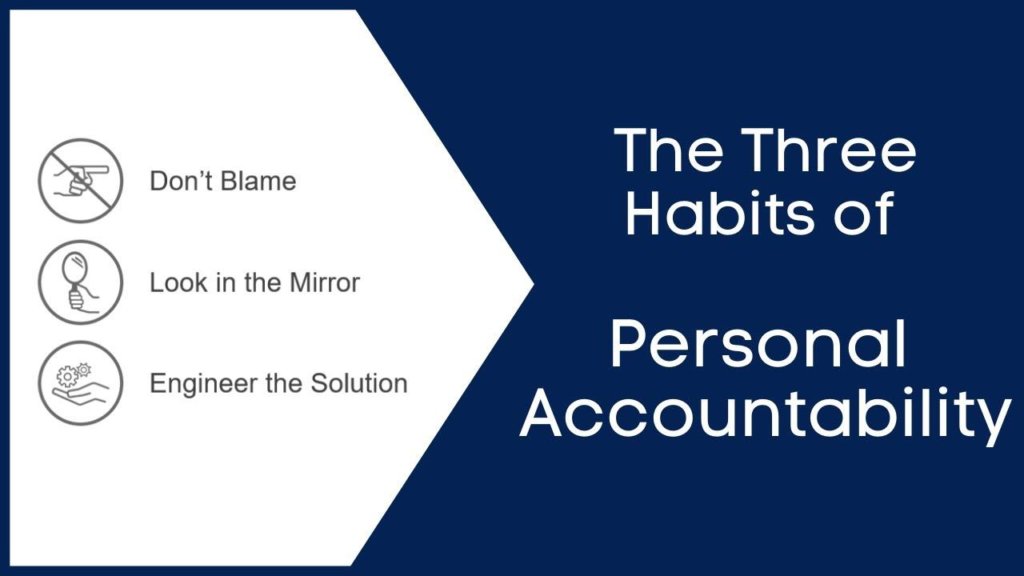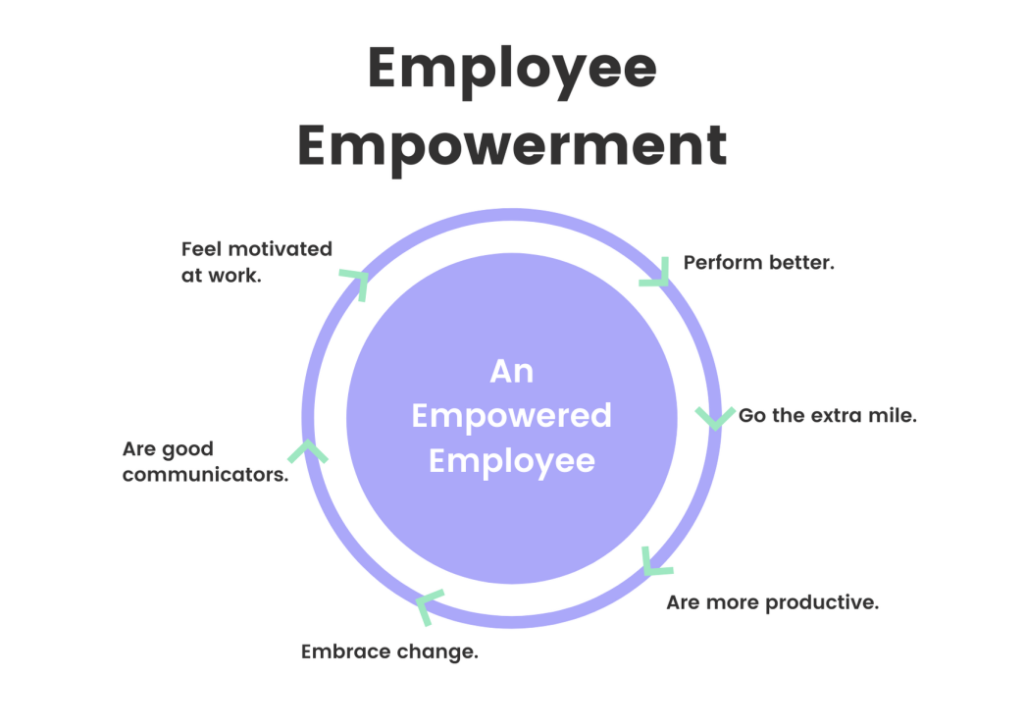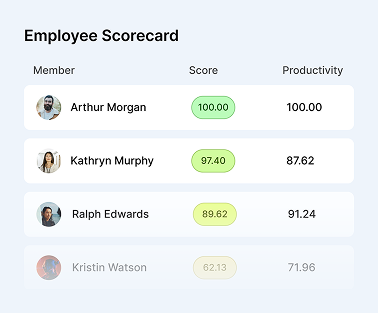Accountability and Responsibility in the Workplace

As an employer, it is your responsibility to create an environment that promotes employee engagement and job satisfaction. One of the key components to achieve it is ensuring that your employees are responsible and feel a sense of accountability for their work, without hindering the balance of their personal life. Establishing clear expectations and leading by example can help foster workplace accountability.
Yet, responsibility and workplace accountability are often confused, but they are two distinct concepts. Understanding the difference between responsibility and accountability will help you to create a successful and productive work environment that encourages growth and development.
What is Accountability in the Workplace?
Accountability in the workplace refers to the obligation of employees, teams, and leaders to take responsibility for their actions, decisions, and results. It involves being answerable for fulfilling commitments, adhering to established standards, and delivering on the promises made to colleagues, customers, and the organization as a whole.
In a workplace with strong accountability, employees understand their roles and responsibilities clearly and are committed to performing their tasks to the best of their abilities. This includes not only completing assigned duties but also owning the outcomes, whether positive or negative. When mistakes occur, accountable employees don’t shift blame or make excuses; instead, they acknowledge the error, learn from it, and take steps to rectify the situation.
Accountability is a key component of a healthy work environment for several reasons:
In essence, accountability in the workplace is about taking responsibility for one’s actions and their impact on the team and the organization. It requires a culture where expectations are clear, performance is monitored, and there is a commitment to transparency, honesty, and continuous improvement. When accountability is embraced across all levels of an organization, it leads to a more productive, trustworthy, and successful workplace.
What is Responsibility in the Workplace?
Responsibility in the workplace refers to the duties, tasks, and obligations that an employee is expected to carry out as part of their role within an organization. It involves being reliable, dependable, and proactive in completing work assignments and meeting the expectations set by employers or team leaders.
At its core, responsibility is about recognizing what needs to be done and taking the initiative to ensure it is completed. It encompasses various aspects of workplace behavior and performance, including:
In summary, responsibility in the workplace is about being accountable for the duties assigned to you and ensuring that you meet the expectations associated with your role. It’s about taking initiative, making sound decisions, solving problems, and conducting oneself ethically and professionally. When employees embrace responsibility, it leads to higher productivity, better teamwork, and a more successful and harmonious workplace.
Key Differences of Responsibility vs Accountability
President Harry. J Truman popularized a quote that still rings true today: “The buck stops here” to indicate that he was ultimately liable to take action as the acting government leader and that he would not pass the blame for any mistakes or failures to others. He was willing to take full accountability for the consequences of said actions.
Responsibility involves action, while accountability involves ownership. According to business historian Vincent E. Barry, responsibility in the workplace is “a sphere of duty or obligation assigned to a person by the nature of that person’s position, function, or work”, therefore responsibilities are outlined in the job description and delegated to each employee.

Accountability is an action taken on the back of responsibility – it requires that you take ownership of the outcomes, even if these responsibilities are not achieved. Accountability involves more than just responsibility. It adds the element of ownership and taking ultimate liability for results.
As an employer, it is important to differentiate between both concepts. In this way, you are aware of what each employee is liable for and can ensure that all workers are held accountable for the outcomes of their efforts. This will help create a company culture where everyone has a clear understanding of their role and purpose, and how they contribute to the success of the organization.
Benefits of Accountability in the Workplace
Creating a culture of workplace accountability can have numerous benefits for both the individual and the company as a whole. It can help employees to become more self-reliant, confident and independent thinkers as well as help to instill a sense of ownership in their work.
Improves Job Performance
Poor performance can be a major issue for any employer. To foster accountability can be an effective solution. When workers understand that they will be held accountable for their work performance, they are more likely to strive for excellence, reducing instances of subpar work and missed deadlines. This can help to create a work environment where everyone is working together to reach a common goal.
Fosters Creativity and Drives Innovation
Employee accountability opens the risks and the exploration of new ideas. This can lead to increased creativity and innovation that drives the success of the organization. By encouraging employees to think outside the box and take ownership of their projects, a culture of personal accountability helps to foster creativity.
Increases Team Engagement
Accountability systems can help to improve employee engagement, protecting companies from low team morale. When workers are held accountable for their results, they feel more connected to the organization, as well as empowered to take initiative and make decisions. This creates an environment where everyone is working together towards a common goal and encourages collaboration amongst team members.
Benefits of Responsibility in the Workplace
Taking personal responsibility in the workplace is a crucial aspect of any successful career. When an employee is responsible, they are dependable, reliable, and accountable. A responsible employee drives job engagement and highly-engaged employees bring 23% more profit for their company. Reliable staff can also help to build trust between employees and managers as well as promote a sense of ownership in their work.
Boosts Self-Confidence in the Organization
When workers feel responsible for their work, it can boost their self-confidence in the office. Being liable and dependable makes one feel more secure and trustworthy in their position, which can lead to increased job satisfaction. As a result of this, employees become more comfortable taking ownership of projects and specific tasks. This helps build relationships with co-workers and encourages collaboration between staff members.

Improves Time Productivity
Responsibility in the workplace can help to improve time productivity as well. When workers take responsibility for their work, they are more likely to prioritize assignments and manage their time effectively. This helps them become more efficient in completing tasks and meeting deadlines. Accountability is important to help create better processes that streamline workflow and increase the efficiency of the staff as a whole.
Foster Trust Among Team Members
Taking responsibility in the workplace is integral to cultivating trust within a team. When employees successfully fulfill their duties and projects on time, trust between staff members increases. This creates an atmosphere of shared understanding in the office, enhancing collaboration, communication, and problem-solving prowess. Consequently, teams thrive and achieve greater productivity.
The Impact of Leaders with No Accountability
Leaders who lack accountability in the office can have a detrimental effect on their organizations, leading to a number of negative consequences. Here are four consequences of leaders who lack accountability:
- Decreased Trust: Leaders who lack accountability lose the trust of their team, causing broken promises, and a decrease in morale, loyalty, and productivity.
- Increased Risk: An accountability gap increases the likelihood of errors, accidents, and unethical practices that can lead to legal and financial consequences.
- Poor Decision-Making: Leaders who don’t practice accountability are more likely to make poor decisions, which can negatively impact the organization.
- Damaged Reputation: Lack of accountability can tarnish a leader’s reputation, leading to a loss of credibility and decreased opportunities for growth and success
Building a Responsible and Accountable Team
Building a team that is both responsible and accountable is essential for a successful organization. A team that displays both traits ensures that work is carried out efficiently and effectively, leading to positive results and a productive working environment. Here are a few ways for creating a culture of responsibility and accountability:
Establish Clear Goals and Expectations
An effective manager understands the significance of setting clear expectations for their staff. Vague expectations and ambiguous goals can lead to confusion, frustration, and a lack of motivation among workers. By providing a well-defined roadmap, employees gain a comprehensive understanding of their roles and responsibilities. This clarity empowers them to channel their efforts towards tasks that align with the organization’s objectives, fostering productivity and success.
Empower Your Team for Success
When team members feel a sense of control over their work, they are inclined to take ownership and show initiative. It is the responsibility of managers to model accountability and empower teams by providing them with the necessary resources and skills to thrive. This approach fosters creativity, problem-solving, and collaboration among staff members.

Offer Both Positive and Negative Feedback
Providing both positive and negative feedback is essential for team accountability. Positive reinforcement encourages workers to strive for excellence, while constructive criticism helps identify areas of improvement. This two-pronged approach improves communication between managers and staff members during team meetings, creating an environment where everyone is working together toward the same goal. Offer feedback through a safe space such as direct reports or 1:1 meetings.
Aim for a High-Performing Company Culture
Creating a high-performance company culture that fosters responsibility and accountability starts with leadership. Effective leaders set the tone by leading by example, demonstrating a strong commitment to both responsibility and accountability in their everyday actions and strategic decision-making. By embodying these qualities, managers inspire and empower their teams to do the same, ultimately driving the success of the organization.
Show Respect to All Members of the Team
Respect is an essential element of any successful team. Leaders and managers should always strive to respect their staff members, regardless of position or seniority, as their way to lead. This establishes a culture of mutual respect in the office, encouraging collaboration and innovation among workers. With mutual respect, team members will feel aligned with the company’s core values, fostering responsibility and accountability.
Creating an atmosphere of commitment and liability in the office is essential for achieving organizational goals. Leaders play a significant role in fostering such an environment by leading by example and providing clear guidance on expectations. By taking the necessary steps to create a responsible and accountable staff, managers can help their organization reach new heights of success.
Conclusion: Accountability and Responsibility Build Stronger Teams
Accountability and responsibility are distinct but closely connected pillars of a productive workplace. Responsibility defines what employees are expected to do, including their tasks, duties, and standards of conduct. Accountability adds ownership for results and for how outcomes are addressed. A workplace where both concepts are clearly understood does more than complete tasks, it builds trust, clarity, and shared commitment.
When expectations are transparent and individuals feel empowered to take ownership of their work, performance improves and collaboration becomes more effective.
Leaders reinforce this culture by modeling responsible behavior, setting clear standards, and encouraging ownership at every level. Organizations that balance responsibility with accountability create stronger teams and position themselves for long term success.
– The Monitask Team
FAQ: Accountability and Responsibility in the Workplace
Do Accountability and Responsibility Go Hand in Hand?
Yes, accountability and responsibility are two concepts intricately connected. Responsibility entails fulfilling one’s obligations, while accountability involves acknowledging the repercussions of fulfilling or neglecting those obligations.
Is Accountability Taking Responsibility?
Accountability, unlike responsibility, is typically associated with the completion of a task. However, responsibility can be assumed either before or after the task. As a result, accountability is often limited to a specific situation, while responsibility can be ongoing.
What is Lack of Accountability and Responsibility?
Lack of accountability and responsibility can manifest in various forms, such as procrastination, shirking of duties, avoiding decisions or blame, and not being able to take ownership of one’s actions.



